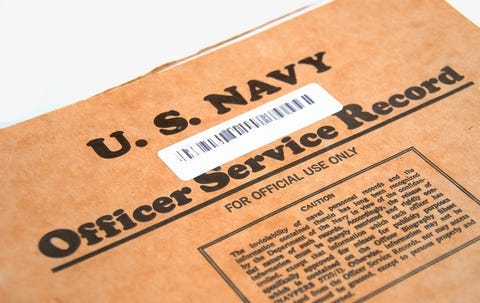
A class-action lawsuit aiming to upgrade the other-than-honorable "bad paper" discharges of Navy and Marine veterans could help those diagnosed with PTSD, TBIs and other service-related conditions.
A year ago, a federal judge certified the class of Navy and Marine veterans of the Iraq and Afghanistan era, who said they were wrongly denied upgrades from their other-than-honorable discharges even though they have been diagnosed with service-connected post-traumatic stress disorder, traumatic brain injuries or other related conditions.
The court found the veterans would be best served as a class, pursuing a combined solution.
More than 13,000 troops who were recently removed from the military with other-than-honorable discharges have PTSD, traumatic brain injuries or other service-connected disorders, according to a 2017 report from the Government Accountability Office.
The National Veterans Council for Legal Redress and the Yale Law School Veterans Legal Services clinic argue that as many as a third of the 2 million veterans of Afghanistan and Iraq may have service-connected mental health concerns. Veteran service organizations such as Vietnam Veterans of America have reported that as many as 13 percent of post-9/11 veterans have "bad paper" discharges.
In a decision earlier this month, the same judge who granted the class certification, Connecticut District Senior Judge Charles S. Haight Jr., denied the Navy's request to dismiss the lawsuit.
The litigation began last year with Marine Tyson Manker, 38, who was other-than-honorably discharged from the Marine Corps after his return from an Iraq deployment in 2003. Manker was removed from the service and demoted to lance corporal after he allegedly admitted to using marijuana to self-medicate his PTSD. Manker filed the original lawsuit.
The lawsuit aims to guarantee fair treatment of veterans appealing their discharges. Another lawsuit seeks a similar change in the Army.
"(The ruling) ... reaffirms the law and brings us one step closer to getting justice for every veteran who was unfairly dismissed from the military with post-traumatic stress disorder, traumatic brain injury and military sexual trauma and denied their honorable discharge," Manker said in a statement following the judge's decision to deny the Navy a dismissal.
Thousands of veterans with other-than-honorable discharges face "prejudice" and other consequences including potential loss of benefits, ostracism from the military and veteran communities and mental health concerns.
As part of the Navy's defense and argument for dismissal of the lawsuit, court documents show the Navy cited previous court doctrine that "Judges are not given the task of running the Army" and that the court did not have the jurisdiction to overrule military personnel decisions.
But the court disagree, ruling that Manker and other plaintiffs in the suit seek "to challenge the legality and validity of the process by which the (Navy Discharge Review Board) has denied discharge upgrades to allegedly afflicted veterans" and the essence of the lawsuit "is that the process by which the Navy decided not to upgrade class members' discharges was deficient."
If Manker, and another veteran listed in the suit as "John Doe" or their fellow veterans, are entitled to upgraded discharges, "that continued deprivation constitutes a serious injustice," the court wrote.
The court issued a limited order of remand for both Manker and Doe's case back to the Navy for further review of their discharges, but added that "there is neither basis for, nor justice in staying the entire class action" while those reviews move forward and no other veteran in the class will be affected by any further decision the Navy makes on Manker or Doe's discharges. The class-action lawsuit will therefore move ahead with discovery actions against former Navy Secretary Richard Spencer, with Manker and Doe's part paused while the Navy conducts further review, the court said.
There is legal precedent for the success of such a case. In 1979, about 10,000 soldiers had their other-than-honorable discharges upgraded after a federal court ruled a drug urinalysis test used by the Army to remove them from service was used illegally.
